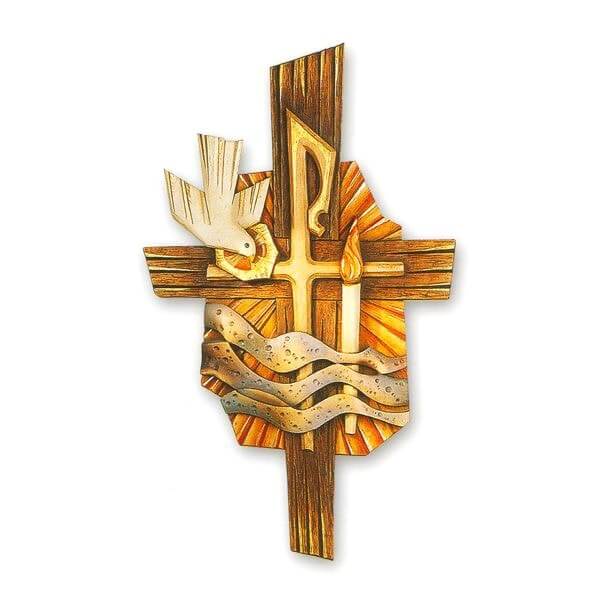
Jn. 3: 16-18
Today we celebrate the solemnity of the Most Holy Trinity. We believe in one God, but there are three persons in this Triune God who are united in love. This Trinitarian love is not self-centered but rather self-giving. The entire salvation history is a typical example of the self-giving love of the Holy Trinity. In John 3:16 we read, “For God so loved the world, he sent his only son so that everyone who believes in him, may not perish but may have eternal life. The very purpose of God’s salvation history was to bring us back to this Trinitarian communion. While Jesus was here on earth with us, he felt the need to continue this communion with his Abba Father and the Holy Spirit. His moments of prayer were the tangible expression of these communion moments. It was just like breath, which was very essential for him. There wasn’t a single day in Jesus life without his solitary moments with Abba. Early in the morning and late in the night, he used to spend time in prayer, cherishing this Trinitarian communion. Even at the last moment of his life, he says, “Into your hands I commend my spirit.” He is going to experience the dead end of his life, but he knows that even in that dead end, the communion that he enjoyed with his Abba will not abandon him.
Like Jesus, we too are called to experience this Trinitarian communion here on earth. Once we enter into such an intimate relationship with the Holy Trinity, we will also enter into such a brotherly intimacy with our fellow brethren. In the second reading, Paul gives us the ideals of the Christian communion. Brothers, rejoice, aim for restoration, comfort one another, agree with one another, and live in peace, and the God of love and peace will be with you. We could live these ideals of Christian communion, only when we experienced this Trinitarian communion within us, and could treat others who were not related to us by blood as our own family members.
At times, we may wonder if it is possible to enter into this Trinitarian communion while here on earth. The first reading tells us that it is possible by presenting to us the story of Moses. Moses was like any of us—a fragile human being who even committed murder and ran for his life from Pharaoh. However, God chose this so called sinner as his prime collaborator and treats him as the beloved of the Lord. God revealed himself to Moses, and he was known as the Friend of God. We see the transformation that Moses underwent as he grew in communion with God. The impatient, fragile Moses became the most patient and powerful leader in the world. As we celebrate this great feast, let us place ourselves before the Lord and pray to make us worthy to enter communion with him. As we partake in the Holy Eucharist and receive communion, let us pray that we may experience the foretaste of communion that awaits us and that God will help us to live a life of communion here on earth.